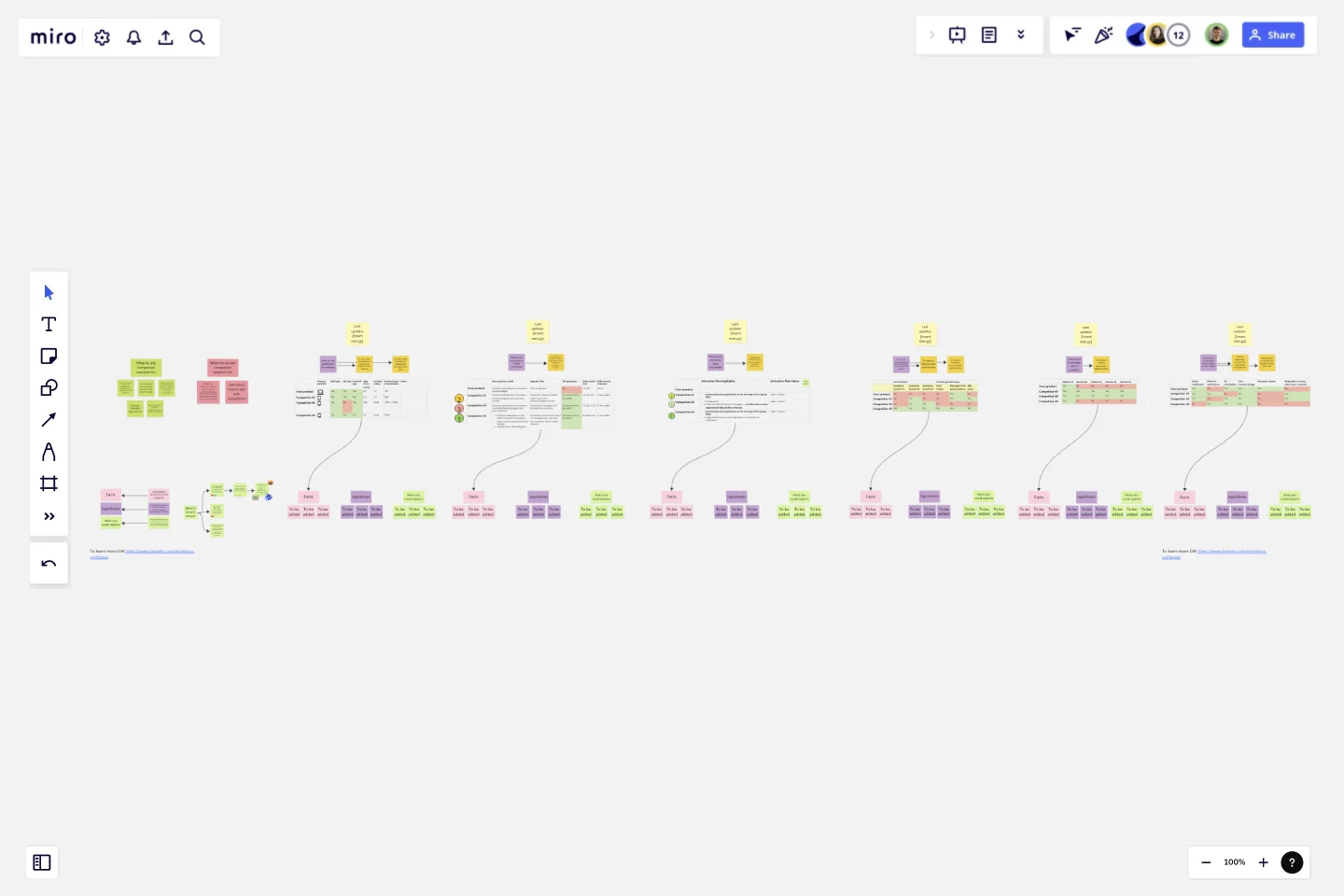Competitor Product Research
Actionable business-model and customer-benefits-driven competitor product research.
Trusted by 65M+ users and leading companies
This format allows you to discover untapped opportunities and generate informed product and growth hypotheses.
Competitor product research yields the most results not when it's based on feature comparison tables, but when the facts uncovered feed the hypotheses bank that ideally go through additional validation. Check out the template to know more.
This template was created by Milena Ryzhkova.
Get started with this template right now.
A3 Report Template
Works best for:
Product, Strategy and Planning
The A3 report template is a carefully designed tool that provides teams with a structured and visual methodology to tackle challenges. It divides the problem-solving process into background, current context, data analysis, and implementation plans, ensuring a comprehensive approach to each issue. One of the major advantages of this template is its "Data Analysis" section, which enables teams to delve deeply into concrete insights and trends. This data-driven approach ensures that all recommendations and actions are based on real, tangible evidence rather than just intuition, leading to more effective and strategic decision-making.
Product Development Roadmap Template
Works best for:
Product Management, Software Development
Product development roadmaps cover everything your team needs to achieve when delivering a product from concept to market launch. Your product development roadmap is also a team alignment tool that offers guidance and leadership to help your team focus on balancing product innovation and meeting your customer’s needs. Investing time in creating a roadmap focused on your product development phases helps your team communicate a vision to business leaders, designers, developers, project managers, marketers, and anyone else who influences meeting team goals.
Working Backwards Template
Works best for:
Desk Research, Strategic Planning, Product Management
Find out how to use the Working Backwards template to plan, structure, and execute the launch of a new product. Using the template, you’ll figure out if the product is worth launching in the first place.
Fishbone Diagram for Product Development
Works best for:
Fishbone Diagram
Enhance your product development process with the Fishbone Diagram for Product Development. This template helps you identify potential issues and their root causes, ensuring a thorough analysis before product launch. Use it to streamline development, reduce risks, and improve product quality. Perfect for product managers and development teams aiming to deliver high-quality products efficiently.
Fishbone Diagram for Process Improvement
Works best for:
Planning, Strategy
Process improvement is key to enhancing efficiency and productivity. The Fishbone Diagram for Process Improvement template helps you identify the root causes of process inefficiencies. Categorize potential causes into areas such as workflow, resources, technology, and personnel. This structured analysis enables your team to systematically explore and address issues, streamlining processes and boosting overall productivity.
Product Metrics & Analytics
Works best for:
Product Management, Planning
The Compelling Product Offer template assists product teams in defining and measuring key product metrics effectively. By identifying performance indicators, setting benchmarks, and tracking progress, this template enables teams to evaluate the success of product initiatives objectively. With sections for defining KPIs, visualizing data, and analyzing trends, it provides actionable insights for driving product improvements and optimizations. This template serves as a dashboard for monitoring product performance and making data-driven decisions that enhance the overall product offering.
